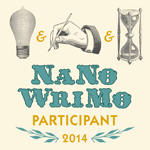 PD (professional development) is a new buzz word, especially for educators. Yet, the idea of continuing to learn and develop in business has been around for decades and even longer for medical/health professionals (often called continuing education or credentialing to maintain licenses). For writers, and many creative types, it is part of the business and has been forever (though it was given no trendy label). To share and learn with others in the field, to keep up on latest trends, to continue developing and honing skills, writers and illustrators attend conferences, read industry journals (magazines about writing and illustrating), reading books, and meeting to network and share.
PD (professional development) is a new buzz word, especially for educators. Yet, the idea of continuing to learn and develop in business has been around for decades and even longer for medical/health professionals (often called continuing education or credentialing to maintain licenses). For writers, and many creative types, it is part of the business and has been forever (though it was given no trendy label). To share and learn with others in the field, to keep up on latest trends, to continue developing and honing skills, writers and illustrators attend conferences, read industry journals (magazines about writing and illustrating), reading books, and meeting to network and share.
When I taught at the local college, most of the professors were upset with a new mandate for annual teaching portfolios with a section on professional development. I was one of the few people complaining, so the faculty coordinator asked me why. I shrugged. “It’s not a big deal,” I said. Professional authors do this all the time, so it’s not a stretch to move from writing development to teaching of writing and meet the portfolio requirements.” Besides, I thought, I’m a lifelong learner which is why I wanted to teach at the college level. All the grumbling made me wonder about my colleagues though.
Why PD?
In a way, simply considering what it stands for answers this question: professional development = building on skills to improve performance; personal development = learning that aids growth. Both place you at a level higher than before the PD. For writers, learning really never stops. There is always more to learn and new trends or markets to keep up on.
Types of PD
Opportunities to continuing learning and developing are everywhere. For many occupations, not only writers, these might include:
- Reading and/or individual study to increase knowledge and skill.
- Video or audio recordings or presentations about specific topics to increase knowledge and skill.
- Seminars or Webinars (online seminars) in which a lecturer shares expertise about a specific area/topic or skill set.
- Conferences and workshops. In person opportunities to network with others and interact with attendees and presenters while building on knowledge and skill.
Where to Find PD Opportunities
-
Professinal Associations often sponsor workshops and/or conferences. Sometimes you must be a member or attend as a guest. I’m a member of SCBWI (Society of Children’s Book Writers and Illustrators) which hosts conferences plus numerous online (webinars). Local colleges, schools, churches, and community centers often offer personal enrichment classes. (Some gated communities or senior living facilities offer programs too, often opening them to the public for a fee.) Check newspaper listings for authors or presenters visiting bookstores or libraries, too.
- Online programs and courses + Podcasts and internet radio. Look up favorite authors to see if they have websites, are affiliated with any learning programs or association (then check those). See what is mentioned on social media.
- Newsletters, magazines, websites (books, both phsical and ebooks). Industry news, textbook publishers, magazines.
- DVDs and video/audio recordings.
- Associations and libraries/websites. Many writing conferences offer recordings of specific sessions. You do not usually need to be a member to purchase them. Check for options on Netflix or Amazon Prime (or your favorite streaming/rental service).
- Some of my favorites. I’ve participated in webinars and podcasts this year sponsored by Publisher’s Weekly, Booklist, and Education Week. Check their websites or social media sites for announcements (or get on their email list). I found 3 webinars through email announcements/newsletters about using social media, Sciviner, and doing book promo and blogging. I’ve taken ecourses through Daily OM, online courses through Gotham Writers Workshops and Udemy, plus courses on DVD from Elephant Rock, Master Classes SCBWI, Teaching Company. Opportunities are out there, and many of the above I’ve taken for free or under $15.
In addition, I teach writing workshops through local adult learning/enrichment programs. News for these are on my website (see the “At the Podium” page), through course catalogs, plus on the web and in local newspapers. Explore, search, connect. You’ll be amazed at what you’ll find and what you’ll learn.






